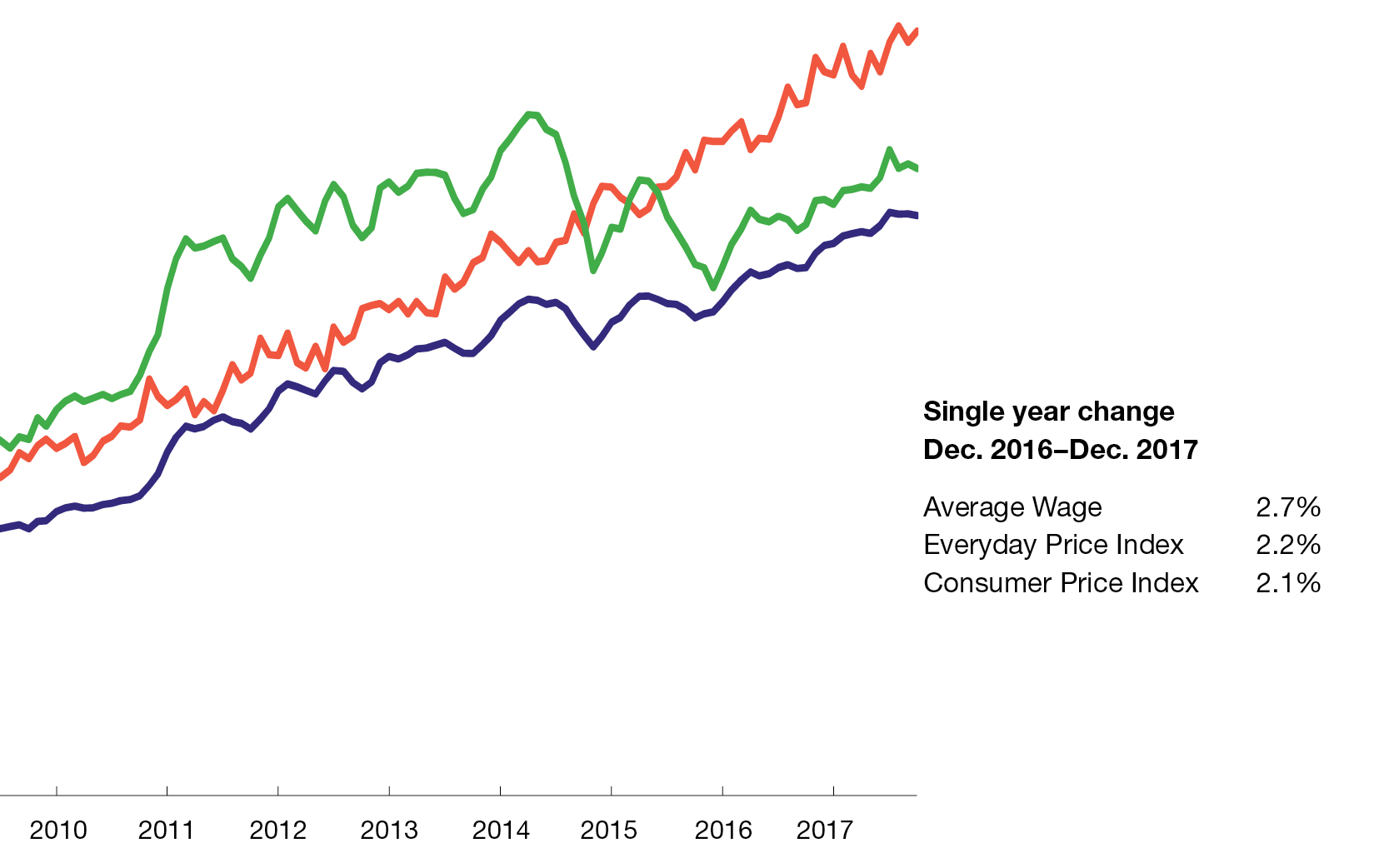The Minimum Wage: Bad for Low-Skilled Workers
The movement to raise the national minimum wage to $15 an hour has suffered a blow with a new National Bureau of Economic Research working paper evaluating the recent experience in Seattle, Wash. The paper by Ekaterina Jardim and four other University of Washington economists indicates that Seattle’s three-step hike in its minimum wage — from $9.57 to $15 — is harming low-skilled workers.
The authors found that at $13 an hour, hourly wages in low-paying jobs rose 3.1 percent last year, but hours worked dropped 9.4 percent — 3.5 million hours per quarter — for an average loss of $125 in wages per worker per month. Economist Mark Perry points out that things should only get worse with the “additional $2 an hour increase in the city’s minimum wage that just took effect on January 1 of this year from $13 to $15 an hour for large employers.”
In other words, as most economists have long predicted, the chief victims of minimum-wage laws are the supposed beneficiaries.
Oddly, The Washington Post’s story on the Seattle study, “A ‘Very Credible’ New Study on Seattle’s $15 Minimum Wage Has Bad News for Liberals,” states,
The paper’s conclusions contradict years of research on the minimum wage.… Economists have long argued that increasing the minimum wage will force some employers to let workers go. In 1994, however, economists David Card and Alan Krueger published research on minimum wages in Pennsylvania and New Jersey that contradicted this theory, motivating dozens of studies into the issue over the coming years.
In fact, many decades of empirical economic research have found net harm to low-skilled workers, illustrating what economic theory leads us to expect. As economist Linda Gorman writes in The Concise Encyclopedia of Economics:
Most economists believe that minimum wage laws cause unnecessary hardship for the very people they are supposed to help.
The reason is simple: although minimum wage laws can set wages, they cannot guarantee jobs.…
Several decades of studies using aggregate time-series data from a variety of countries have found that minimum wage laws reduce employment.
Regarding Card-Krueger, Gorman points out that when their study of fast-food restaurants was redone using payroll records rather than unreliable telephone surveys, David Neumark and William Wascher found a drop in the number of fast-food jobs in New Jersey, where the minimum wage had increased. “Card and Krueger retreated from their earlier position,” Gorman adds, but they still claimed what they termed “a small positive effect.”
Just as Card and Krueger’s study was criticized for methodological flaws, so is the UW paper being criticized. The Post notes, however, “Economists might not readily dismiss the new study as an outlier, however. The paper … makes use of more detailed data than have been available in past research, drawing on state records of wages and hours for individual employees.”
The UW research contradicts a positive evaluation released a week earlier at the University of California–Berkeley. Michael Saltsman of Forbes notes that the city funded the Berkeley study after it had commissioned the UW one. Why? “Unfortunately for the Mayor’s office,” Saltsman writes, the UW researchers’ “conclusions … were not uniformly positive.” The Berkeley researchers were known for favoring minimum-wage increases.
Ironically, empirical studies on both sides of the controversy are subject to methodological objections because any economic situation is complex: countless factors influence events, and isolating the cause of an effect makes finding a needle in a haystack child’s play. Data don’t speak for themselves: they must be interpreted with a theory. A rise in the minimum wage might be followed by increased employment of unskilled workers, but correlation is not causation. Other factors could offset the rise in the wage, which is why economists like to say “other things equal” when talking about change.
Does that mean we cannot know whether the minimum wage is beneficial or harmful? Not at all. We have economic theory to guide us — specifically the law of demand. As anyone who shops knows, as the price of a good or service rises, other things equal, the quantity demanded tends to fall. A rise in the minimum wage, assuming low-skilled workers have not suddenly become more productive, will tend to harm those workers: fewer workers may be hired; some may be replaced by machines or higher-skilled, higher-paid workers; hours may be cut; fringe benefits and amenities may be curtailed or eliminated. “In other circumstances,” the UW study says, “employers may conclude that the work of least-paid workers need not be done at all.”
There is simply no reason to think the law of demand does not apply to labor markets. Minimum-wage advocates often claim that increases are good for business. Why, then, must employers be forced?
To raise wages, the government need only stop obstructing competition, saving, and investment, which make workers more productive.






